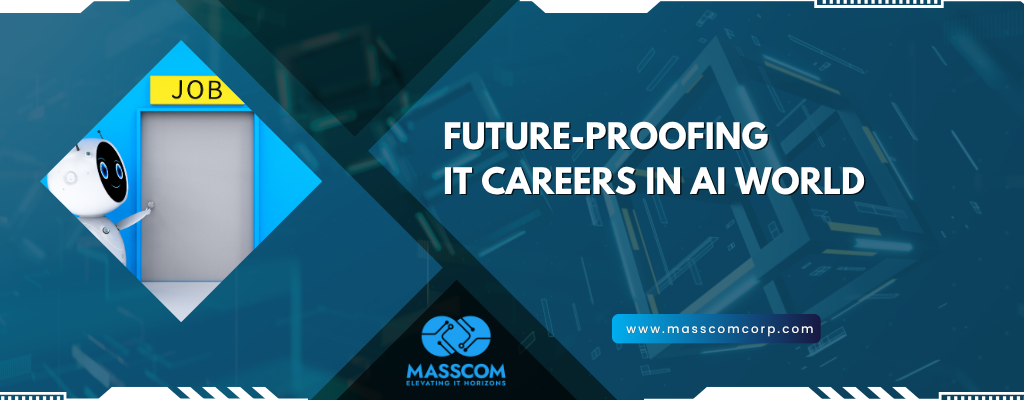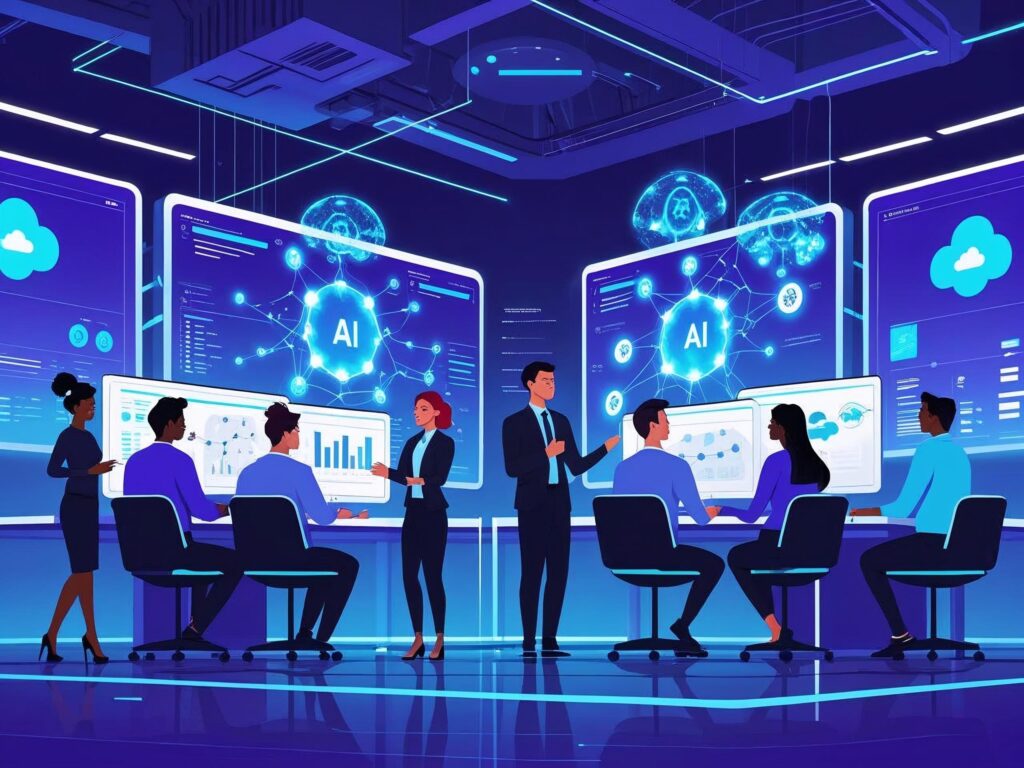
What Is an AI-Ready Workforce?
An AI-ready workforce is one that’s not just comfortable with AI tools, but also capable of:
- Understanding how AI integrates into business operations
- Identifying opportunities for automation
- Reskilling and upskilling to work alongside AI systems
- Leading AI initiatives with strategic vision
- Managing AI risks including bias, security, and compliance
In the context of IT, this means training developers to use AI-enhanced IDEs, equipping data analysts with ML pipelines, and enabling DevOps teams to leverage AI-driven monitoring and testing tools.
For IT Workers: How to Future-Proof Your Career
If you’re a developer, engineer, or technical analyst, here’s how you can begin preparing:
1. Upskill in AI-Augmented Tools
Learn to use tools like GitHub Copilot, VS Code extensions, AutoML, and data annotation platforms. Understand prompt engineering and how to get the best out of AI assistants.
2. Go Beyond Code
Expand into roles where AI still lags—such as architecture, security, UX design, and system thinking. These areas are harder to automate and require strategic thinking.
3. Get Cross-Functional
Understand business logic, project management, and customer impact. The future belongs to hybrid professionals who blend tech expertise with business intelligence.
4. Stay Curious, Stay Learning
AI is evolving fast. So should you. Follow trends, take micro-certifications in AI, and experiment with new tools regularly.

What Is an AI-Ready Workforce?
An AI-ready workforce is one that’s not just comfortable with AI tools, but also capable of:
- Understanding how AI integrates into business operations
- Identifying opportunities for automation
- Reskilling and upskilling to work alongside AI systems
- Leading AI initiatives with strategic vision
- Managing AI risks including bias, security, and compliance
In the context of IT, this means training developers to use AI-enhanced IDEs, equipping data analysts with ML pipelines, and enabling DevOps teams to leverage AI-driven monitoring and testing tools.
For IT Workers: How to Future-Proof Your Career
If you’re a developer, engineer, or technical analyst, here’s how you can begin preparing:
1. Upskill in AI-Augmented Tools
Learn to use tools like GitHub Copilot, VS Code extensions, AutoML, and data annotation platforms. Understand prompt engineering and how to get the best out of AI assistants.
2. Go Beyond Code
Expand into roles where AI still lags—such as architecture, security, UX design, and system thinking. These areas are harder to automate and require strategic thinking.
3. Get Cross-Functional
Understand business logic, project management, and customer impact. The future belongs to hybrid professionals who blend tech expertise with business intelligence.
4. Stay Curious, Stay Learning
AI is evolving fast. So should you. Follow trends, take micro-certifications in AI, and experiment with new tools regularly.
Lets discuss your next project
Common AI Implementation Mistakes
- Treating AI as a plug-and-play tool – AI success depends on data quality, process design, and continuous optimization.
- Neglecting change management – Teams need training, communication, and support to embrace AI tools effectively.
- Over-automating – Removing too much human oversight can lead to errors, compliance issues, and reduced innovation.
For Managers & CIOs: Leading the Transition
The leadership challenge is not just in deploying AI, but in managing its impact on people. Here’s how to guide your teams:
1. Reskill Before You Replace
Encourage a culture of learning. Provide structured programs to help teams understand and adapt to AI tools rather than fear them.
2. Create AI Champions
Identify early adopters and empower them to become AI champions within your departments. They’ll help bridge the knowledge gap for others.
3. Redesign Roles, Not Just Headcounts
Rather than cutting jobs, redefine them. Transition routine roles into hybrid functions that combine human judgment with AI support.
4. Communicate Transparently
Fear grows in silence. Keep teams informed about AI roadmaps, how it may affect roles, and what support will be provided for transitions.
The Future of IT Jobs: Human + Machine
The future of IT jobs isn’t about who gets replaced, it’s about who evolves. The most valuable professionals will be those who know how to:
Integrate AI into their workflows
Make sense of complex systems
Collaborate across functions
Drive ethical and inclusive technology development
For companies, success will hinge on building a workforce that’s not just tech-savvy, but AI-savvy, a truly AI-ready workforce.
From Fear to Future
The rise of AI in IT doesn’t have to be a story of layoffs. It can be a story of leadership of individuals and companies willing to adapt, grow, and lead the transformation. Let AI handle the mundane, so you can focus on what humans do best: creating, solving, connecting, and leading.
Masscom Corporation is committed to helping organizations and professionals navigate this shift. Whether it’s through AI implementation, workforce training, or strategic consulting, we’re here to help you build the future together. Contact Us

